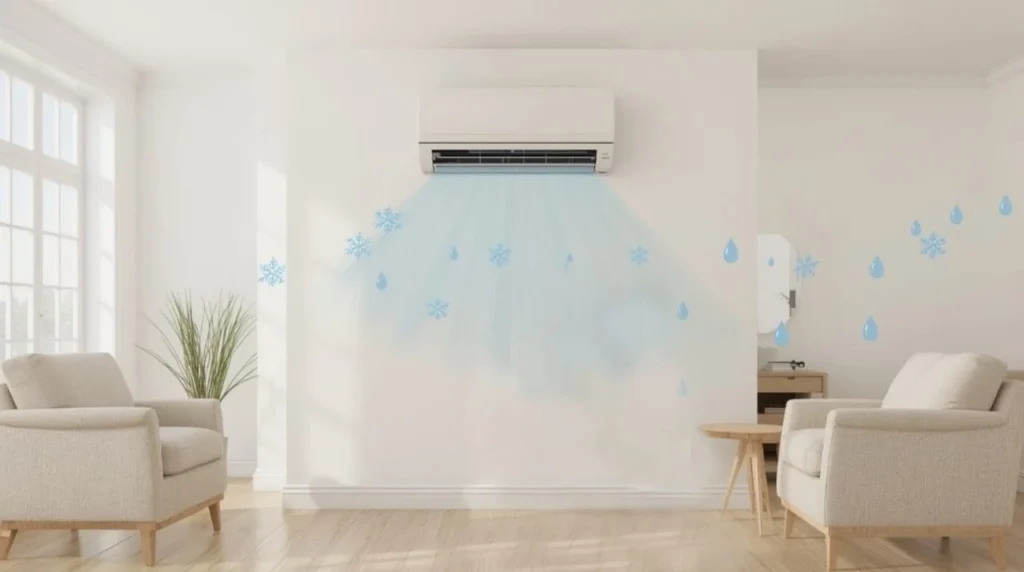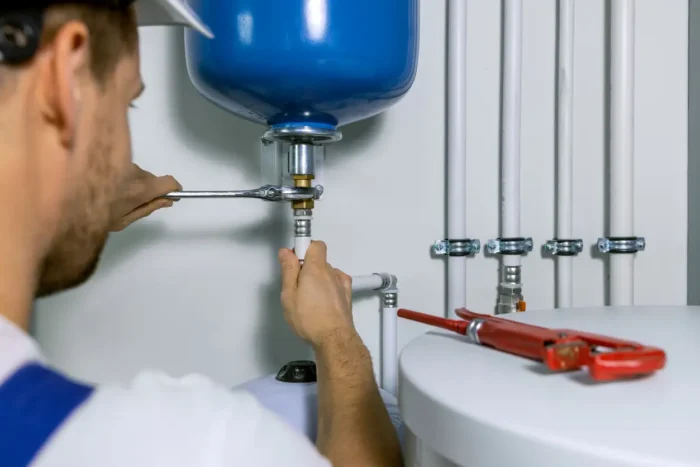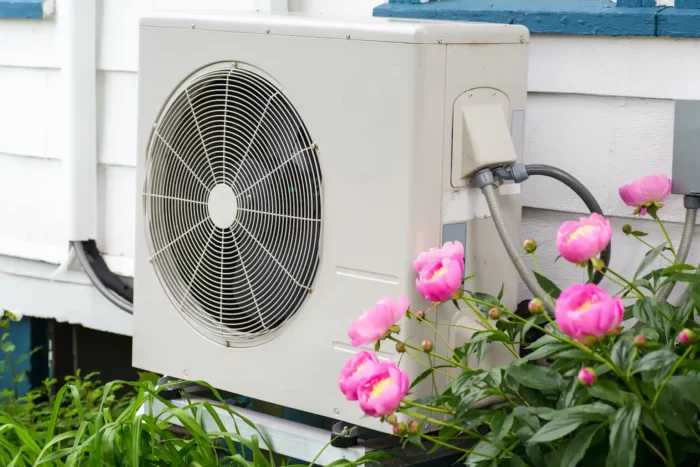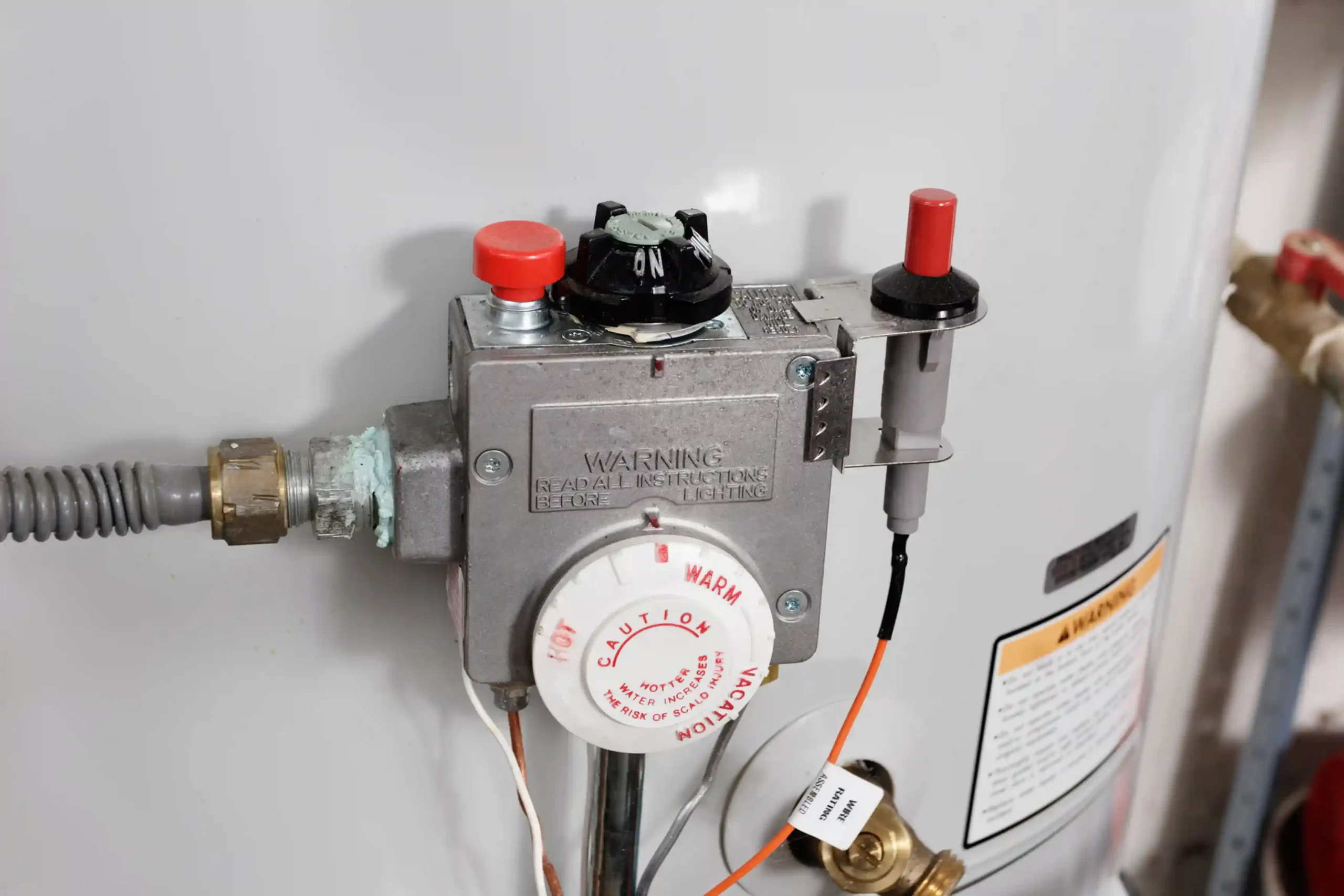Air conditioning is more than simply a cooling system (although that’s the most common thing that people think of when they hear the words). A common question is whether air conditioning decreases a room’s humidity level. The short answer is yes, the air unit does work to humidify the air. AC units not only cool the air but also remove the moisture, and that can make a huge difference in the comfort level of a space.
That said, there are a number of factors that contribute to the ability of your AC unit to control humidity levels. This post will explore the question of “Does Air Conditioning Control Humidity?” in more detail, along with my own commentary, and share some of my recommendations to getting the most out of your AC unit.
Table of Contents
ToggleUnderstanding Humidity and Its Impact on Indoor Environments
What is Humidity?
Humidity is the measure of water vapor in the air. It’s often expressed in terms of relative humidity, which indicates how much moisture is currently in the air compared to how much moisture can be held in the air at that temperature. As a general expectation, the humidity in the house should be between 30% and 50%. When relative humidity is beyond, you will likely begin to notice the effects of high humidity in your environment. Conversely, when worth humidity is too low, the air will feel dry and uncomfortable.
When humidity is above ideal range, that can contribute to a number of issues related to your health and home. For example, high humidity can provide ideal conditions for mold growth, damaging furniture, and making it more difficult to breathe.
Effects of High Humidity Indoors
When indoor humidity rises, the air feels warmer. Therefore, the AC has to work harder to make the environment feel comfortable. High humidity can have other consequences besides discomfort. A few of the most common issues are:
- Mold and Mildew: High humidity encourages the growth of mold, which can cause extensive damage to your home and affect your health, particularly for those suffering from respiratory problems.
- Health problems: Excess moisture in the air can worsen symptoms of allergies and asthma because but dust mites and mold thrive in this type of environment.
- Damage to Property: Moisture can warp wood, damage wall paper, and cause metals to rust, which can turn into expensive repairs.
Managing humidity is not just about comfort, but also about keeping a healthy indoor environment.
How Air Conditioning Affects Indoor Humidity
Air Conditioning as a Dehumidifier
While air conditioning is primarily designed to cool, it also has the added benefit of getting rid of heat. When warm, humid air travels over the evaporator coils in your AC unit, moisture condensation occurs some of the moisture is drawn out of the air as it is cooled in the coils. Because of this, the air conditioning process cools a room and removes moisture simultaneously. Most of the condensation that forms as water is either collected in a bucket or drained away from the unit or blown back into the air.
As I can attest, air conditioning’s ability to remove moisture is more apparent in areas with humidity. You know the sticky and uncomfortable feeling that can occur on a hot summer day in the absence of humidity control? Using the air conditioner not only provides room cooling; it also removes humidity, making the air feel better in the process.
Aircon and Humidity Control
In terms of dehumidification, the type of air conditioner you have can affect how well it works. Most of the time, central air conditioning systems are better at controlling humidity in bigger areas, while window units or portable ACs work better in single rooms. Setting the humidity level in your air conditioner is very important because it keeps your home from getting too muggy, especially during the summer when the humidity outside is high.
Having said that, it is important to remember that controlling humidity and air conditioning go hand in hand. If the air conditioner is too small for the room or isn’t working right, it might not be able to lower the humidity enough, leaving you with a stuffy space. In these situations, you might need extra help, like dehumidifiers or better air flow.
Does Air Conditioning Dry the Air?
People might wonder if air conditioning dries the air. There are a few more parts to the answer. Air fans take moisture out of the air; however, they are not supposed to dry it out too much. Dryness using air conditioning is typically limited to an aging air conditioning unit that has not been well maintained. If you think the air is dry after using the air conditioning, it may simply be the way the air is circulated, or the weather in your home. To resolve the dryness, you can flip the heater controls or use a humidifier.
Air Conditioning vs. Humidifiers: Which is More Effective in Managing Humidity?
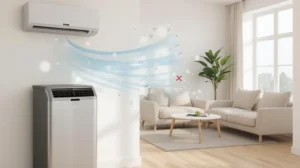
Comparing Air Conditioners to Humidifiers
Even though air conditioners and humidifiers may seem similar, their function is different. Air conditioners cool and eliminate moisture from the air to reduce humidity. Humidifiers add moisture to the air, which is helpful to control dryness. You will first want to utilize air conditioning and humidity control within a building, if you are concerned with reducing too much moisture.
Otherwise, humidifiers can be useful for dry indoor air, especially in the winter season, to allow for additional water content to your comfort, but this would generally not be done in a more humid region. Air conditioning is better suited for controlling high humidity while the air conditioner helps keep the interior of your home warm.
Factors That Affect Air Conditioning’s Ability to Remove Humidity
Air Conditioner Type and Efficiency
The type of air conditioner you have is very important in terms of how it handles humidity. For example, central air conditioners tend to be better at removing humidity in larger areas. Window units and portable air conditioners are great for cooling a single room, but they may not be very effective in larger areas.
From what I have seen, size matters. If the size unit is too small, it may struggle with the humidity load on very hot and humid days. If the unit is too big, it may remove the humidity but cool the space down too much too quickly.
Room Size and Airflow
One more important factor that will impact how well an air conditioner controls humidity is how much airflow goes through the machine. An air-conditioned space in a small room with good airflow will probably produce more cooling benefit than a large room that does not allow airflow. If you struggle with high humidity in a larger room, consider incorporating a fan that can circulate the air more effectively. It will help the air conditioning unit do its job.
External Weather Conditions
Another factor in how well an air conditioning machine can dry the air is how humid the air is outside. If the outside is humid, the AC unit is going to work harder to maintain warm air inside. In climates where outside air is very wet, air conditioning and humidity control are crucial.
Common Issues with ACs and Humidity Control
Air Conditioning and Excess Moisture
If your home feels warm even with the air conditioning running, it may be a problem with the AC unit. The unit is not big enough for the space or it may not be functioning properly, leaving moisture issues even with air conditioning. Your home may also have poor sealing or water leaks into the home. Regular service and maintenance to your air conditioner is important in case there is a mechanical issue.
Why Air Conditioning may not be Enough
In some areas, and/or when outside weather is severe, air conditioning alone may not adequately combat indoor humidity levels. If you live in an area prone to high humidity, you may need additional measures such as a dehumidifier to support your air conditioning for moisture control. Putting air conditioning and a dehumidifier in combination can also help increase your ability to manage humidity in your home.
Tips for Maximizing Humidity Control with Air Conditioning
Increasing the Efficiency of Your AC Settings for Improved Humidity Control
To have your air conditioner work at full capacity, you want to ensure that it is performing well in humidity removal. Many newer air conditioners come equipped with a dehumidification mode, which helps you remove humidity from your space without causing coolness. Setting your thermostat at a higher temperature also helps prevent the air from being overly dry, which helps maintain a cozy home all year.
Regular Maintenance and Filter Changes
It’s important to keep your AC unit in good shape so that it can remove damp effectively. Cleaning or changing your filters on a regular basis will help the air flow and make it less likely that your AC won’t work right. This is something I always tell my clients who want to get the most out of their air conditioners.
Using AC in addition to other methods
Sometimes, the air conditioning doesn’t provide enough cooling to maintain humidity levels. Adding a dehumidifier makes a substantial difference, especially in damp settings. When both of these are working together, you will have a healthy and warm home.
Can Air Conditioning Alone Maintain Ideal Humidity Levels?
Limitations of Air Conditioning
Heating and cooling systems have the potential to reduce humidity, but that is not always sufficient to achieve humidity control. In areas with consistently high humidity outside, a dehumidifier may be required in addition to an air conditioner to maintain a warm environment. It is essential to understand the limits of your system and implement measures to manage the climate in a space.
Alternate Methods for Controlling Humidity
If air conditioning becomes insufficient in managing humidity, consider adding additional types of control. Dehumidifiers are an excellent option, and they can be used in addition to air conditioning to remove moisture. Increasing ventilation in the home can also help remove moisture and improve air movement.
Conclusion
In conclusion, air conditioning does a lot more than just cool the space; it also helps control the temperature and makes the space more comfortable. Whether you have a fixed air conditioner, a window unit, or a portable unit, being able to lower the humidity in the air makes it healthier and more pleasant inside. With regular upkeep, the right settings, and the odd use of a dehumidifier, you can keep your home comfortable and free of too much humidity.
Expert AC Services for Ultimate Comfort
Ensure your air conditioning system stays efficient. Schedule your AC maintenance today!
FAQS related to AC Reduce Humidity
Can Air Conditioning Help Reduce Indoor Humidity?
Yes, air conditioners do help reduce indoor humidity. They remove moisture from the air as they cool, making the environment more comfortable.
Why Does My Home Still Feel Humid Even With the AC Running?
If your AC is running constantly and humidity remains high, it might be undersized for your space or need maintenance. Checking the unit’s capacity and servicing it can help improve performance.
Should I Use a Dehumidifier Alongside My Air Conditioner?
Using a dehumidifier with your AC can enhance humidity control, especially in very humid climates. It helps maintain a comfortable indoor environment.
Does Air Conditioning Dry Out the Air Too Much?
Air conditioners can make indoor air feel dry but they typically maintain a balance. If the air feels too dry, consider using a humidifier to add moisture.
How Can I Maintain Ideal Humidity Levels in My Home?
To keep humidity levels between 30-50%, use your AC efficiently, seal any gaps in windows and doors and consider using a dehumidifier or humidifier as needed.

